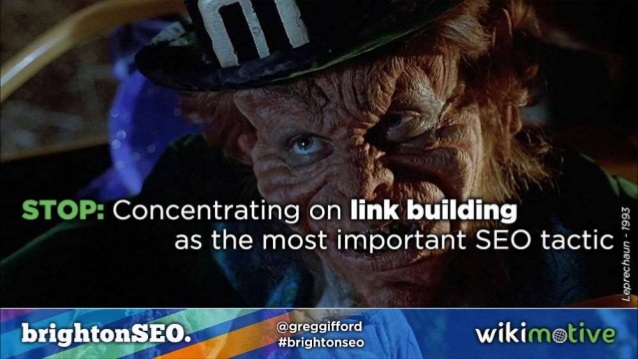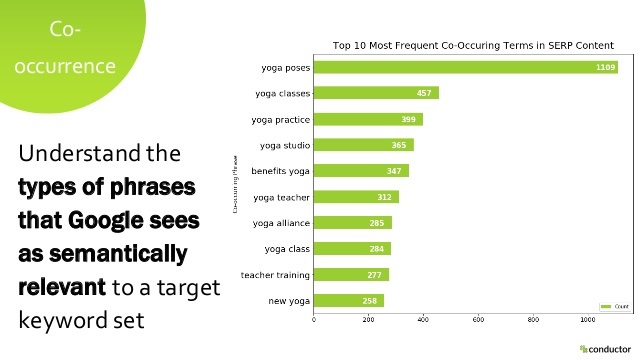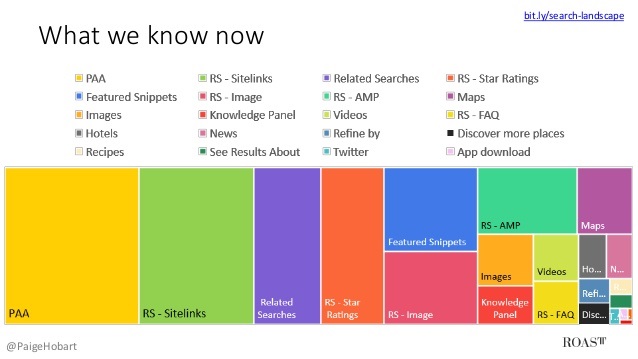BrightonSEO Recap: All the Highlights & Takeaways

BrightonSEO in its 20th year has clearly come a long way from “a room above a pub”… and though it has grown to facilitate more than 4000 participants, it still feels as accommodating as a smaller, intimate event.
Maybe it’s the magic of Brighton: the ocean air, the charming shops and eateries, or even the sunshine. Maybe it’s because BrightonSEO schedules the sessions via a pre-voting process, opening the chance for less familiar speakers to take the main stage. Or maybe it’s the free beer by DeepCrawl. But the fact is that BrightonSEO succeeds in being a highly professional and yet ‘cosy’ event.
Check out my recap of the key takeaways:
Beetlejuice’s Guide to Entities and the Future of SEO
The main session opened with a great talk from Greg Gifford titled: “Beetlejuice’s Guide to Entities and the Future of SEO”. Gifford’s take on the future of search focuses on the role of entities and real-world occurings’ effect on rankings. According to Gifford, an entity (in search) is a thing or a concept that is unique and well defined. (Event, person, object, location, time or even an idea are all entities.)
Gifford believes that entities are the most important concept in SEO and that everything happening in your SERP is a result of entities and their relations. It started with the introduction of the Knowledge Graph back in 2012 when Google announced they are “moving from keywords towards knowledge of real-world entities and their relationships.” The knowledge graph is not an encyclopedia (like most people think), but rather it’s Google learning about entities and their relationships using machine learning. Google assigns entities an ID and then indexes and ranks results using entities rather than keyword matching, which is a much more efficient process.

Credit: Greg Gifford. Source: Slideshare
What does this mean for the future of search?
Rankings will be based on real-world signals driven from entities. Unlike links or keyword matching, entities and their real-world presence can’t be faked.
How to optimize for search entities?
- Do old-school real-world marketing.
- Write content that answers questions in a unique way – pay attention to how it’s connected to other entities so you will be the chosen result.
TIP: Read your content aloud; you will then be able to notice if something about it is not working.
- Local SEO is the key for succeeding in SEO because it is the center of real-world happenings.
- Google My Business is a direct interface to Google information about your business. Use it!
- Focus on: Customer reviews, Google posts and Q&A.
Mining the SERPs: How to Make the SERPs a Powerful Weapon in your SEO Armoury
Most of the SEOs I know tend to have a complex relationship with machine learning. It’s as if we have this primal fear that one day, big mean machines with giant gears and squeaking springs will take over our jobs…
If you are not yet using machine learning to improve your organic efforts, Rory Truesdale’s talk is a good place to start. And fear NOT my friend, the “machines” are not here to replace you, they are here to serve you.
Put succinctly:
- We can deconstruct and analyse SERPs to learn what Google thinks the customers are interested in using Python.
- SEOs should target keywords but they need to optimise for: User Intent, Query Context, Topical relevance, Word relationships.

Credit: Rory Truesdale. Source: Slideshare
How to understand customer intent better to tailor messaging?
Rory has a toolbox made for you with detailed explanations of how to use them. In a nutshell:
- Scrape the SERPs for terms you are interested in.
- Analyse and clean up the data. You should end up with a list of recurring SERP phrases, which represents the topics covered for that Query.
- You can then understand what types of phrases Google finds semantically relevant to your Query.
- All you need to do is optimize your landing page to address this information.
- You can also conduct a “part of speech analysis” to find out how to construct your CTAs (verbs) or what adjectives would function better in that context.
- You can also use the scripts for content ideation and analysing reviews.
SERP Features Glossary
- How many SERP features exist out there?
- Depends who you ask…
Hobart states that there is currently no consensus as to how many features exist in search nor are SEOs in agreement as to how those features are called. For example, what do you understand as Answer Boxes? Are those featured snippets? Knowledge cards?
Hobart argues that SEOs tend to go after SERP features without discriminating between those that end up being zero-click searches and those that can have a positive impact on their traffic. She believes that optimizing for transactional related SERP features as opposed to research related ones, should be more beneficial.

Credit: Paige Hobart. Source: Slideshare
Hobart then presents an analysis of 10,529 keywords across different verticals. Here is the gist of it:
- Only 20% of searches didn’t feature PAA. (“People also asked:”)
- SERPs are extremely variable in features across different verticals.
Hobart divides the features into 3 groups:
- Rich snippets in your control (Sitelinks, Star Ratings, AMP, FAQ) – covering 30% of the SERP feature landscape across verticals
- Featured Snippets (PAA, Images, Local, Videos etc.) – covering 45%
- Pay or Walk away type of features – covering 15-20%
Tips for winning the winnable:
- FAQ schema on transactional queries landing pages
- Optimise for PAAs and featured snippets
- Once won, test the effects of winning to see that it’s not counterproductive to your objectives
Making Captions Beautiful (and Searchable) to Improve Video Experience
Ahmed Khalifa’s talk was one of the most inspirational ones at this BrightonSEO conference. I was so intrigued in fact, that I gave up taking notes :). But I honestly don’t think I can do justice to Ahmed’s message in summary form, so I encourage you to spend 20 minutes watching this captionless video to get a glimpse of just how important it is to have great captions.
So that’s my 2 cents from BrightonSEO. Hope to see you there in April!



